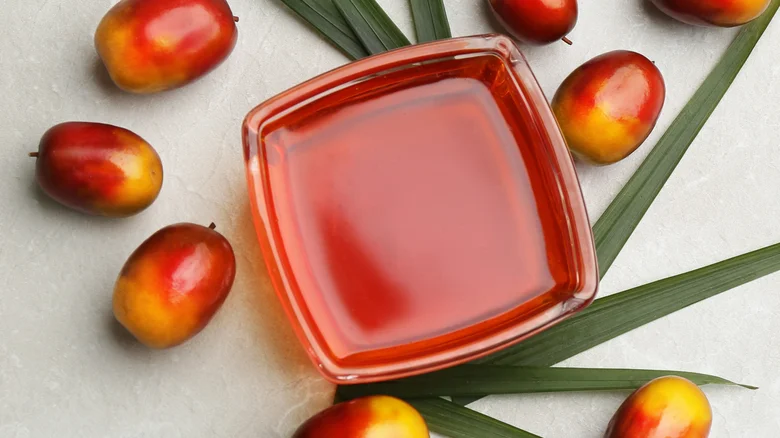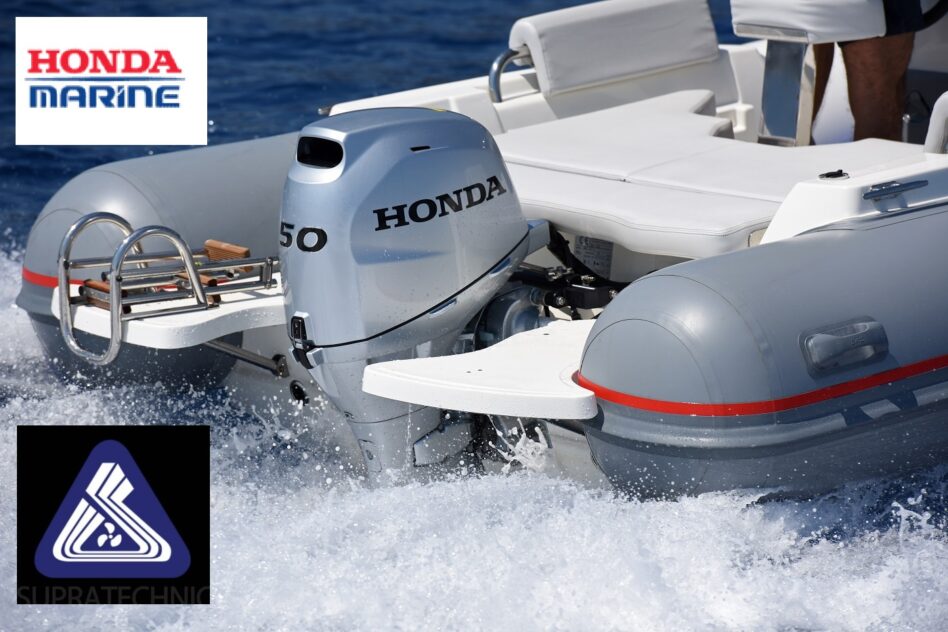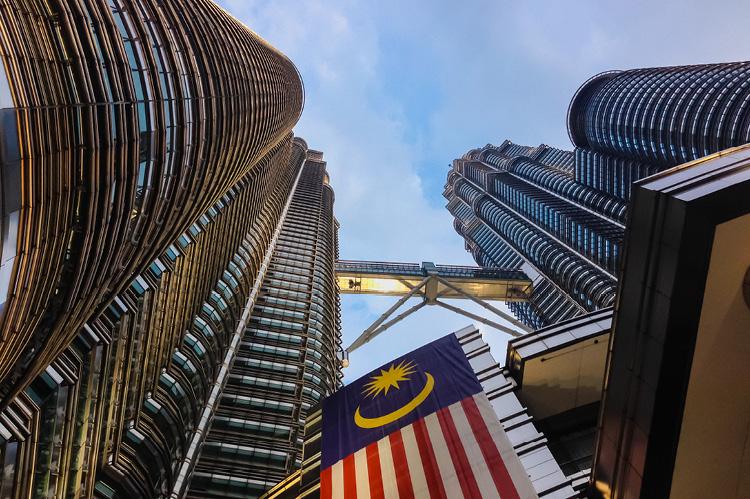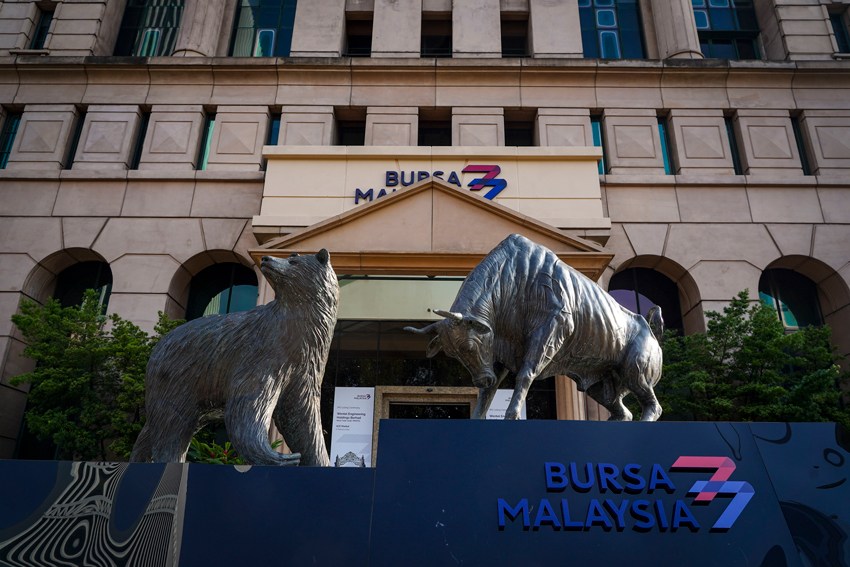THE oil palm plantation sector has long been linked to deforestation, greenhouse gas (GHG) emissions, labour exploitation, and land rights violations.
These longstanding issues have resulted in:
(i) Increased global scrutiny and the introduction of stricter regulations, particularly from major importing regions such as the European Union and the United States.
(ii) A noticeable shift in demand from buyers and consumers (especially in these regions) toward sustainably produced palm oil.
(iii) The growing integration of ESG criteria into funding and investment decisions by financial institutions, including both lenders and investors.
“In response, planters have intensified efforts to adopt and integrate ESG principles across their operations,” said Hong Leong Investment Bank.
Beyond rising ESG adoption, the level of ESG disclosure among planters has improved over time, spurred by both mandatory and market-driven requirements.
Notable examples include the EU Deforestation Regulation (EUDR), which requires enhanced traceability and data systems; Task Force on Climate-Related Financial Disclosures (TCFD) reporting, and sustainability disclosures mandated by Bursa Malaysia.
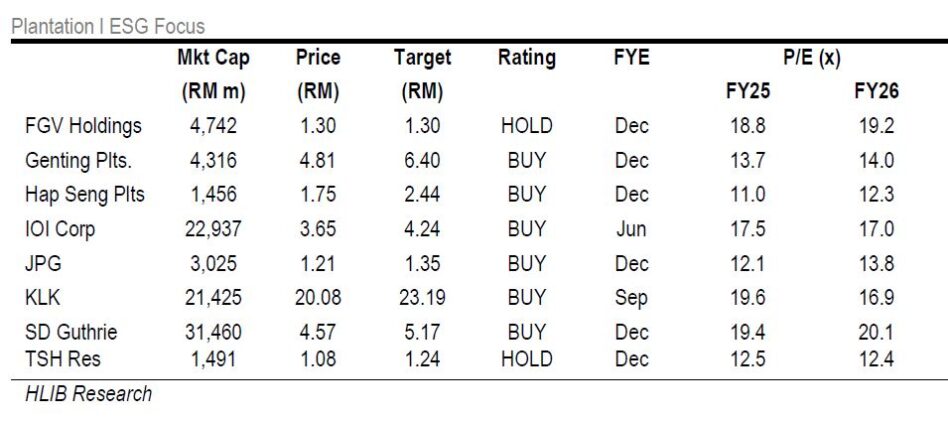
Key elements within the Environmental pillar (particularly GHG emissions, and water management) are
critical in in assessing how planters interact with and impact the natural environment. 4 out of 7 planters recorded lower GHG intensity (namely HS Plant, JPG, KLK and SDG).
These improvements stemmed from various reduction initiatives, such as the installation of biogas plants and filter belt press, the purchase of green energy, and the use of by-products like palm kernel shell (PKS), etc.
In terms of water intensity, 7 out of 8 planters achieved lower water intensity in FY24, signalling more efficient water usage and improved water management practices across operations.
While progress under the Social pillar is more difficult to quantify due to its qualitative nature, many planters have shown clear commitment to addressing key social concerns.
This is reflected in initiatives such as improved labour practices, enhanced workers’ welfare, community
engagement programmes, and efforts to uphold human rights across their operations and supply chains.
Governance practices among planters showed uneven progress in FY24, particularly in board
independence and gender diversity.
In terms of board independence, all planters met the minimum requirement under the Malaysian Code on Corporate Governance (MCCG) i.e. at least 50% independent board representation.
HS Plant and KLK improved their board independence (from 40-44% in FY23 to 56-60% in FY24).
In contrast, IOI and TSH saw declines (from 67% and 56% in FY23 to 57% and 50% in FY24, respectively). Gender diversity, on the other hand, showed mixed progress in FY24.
While HS Plant, KLK, and TSH recorded higher female board representation in FY24, FGV and SDG experienced declines.
Notably, 4 out of 8 planters under coverage still fall short of the MCCG’s recommendation of 30% female representation on the board.
YTD, CPO price averaged at RM4,399/mt. We maintain our 2025-26 CPO price projections of RM4,000/mt and RM3,800/mt for now, pending a review (with slight upside bias).
Maintain Neutral on the sector, given the absence of clear demand catalyst (at least for now). For exposure, our top picks are SDG (BUY; TP: RM5.17), JPG (BUY; TP: RM1.35) and IOI (BUY; TP: RM4.24). —June 24, 2025
Main image: Tasting Table


